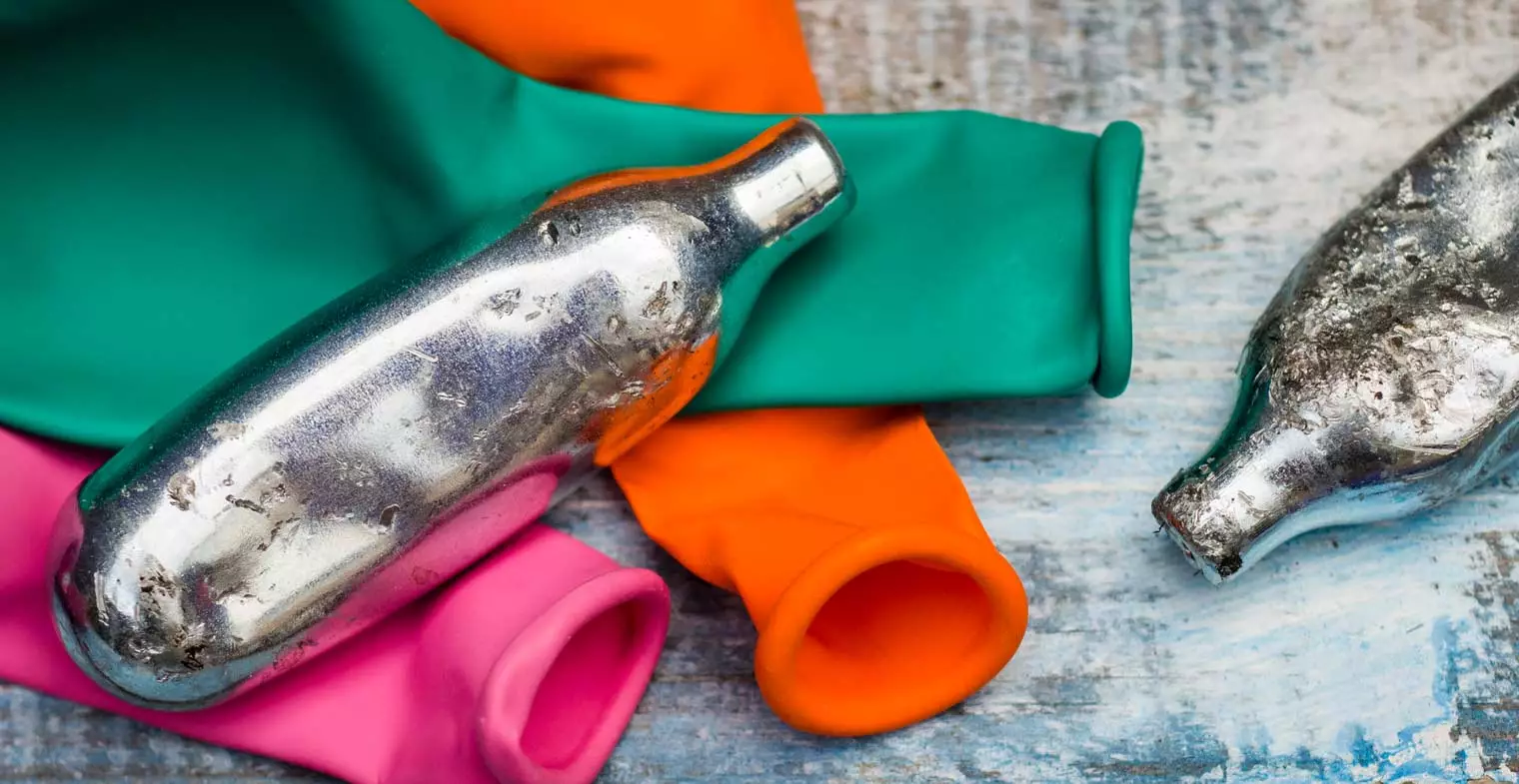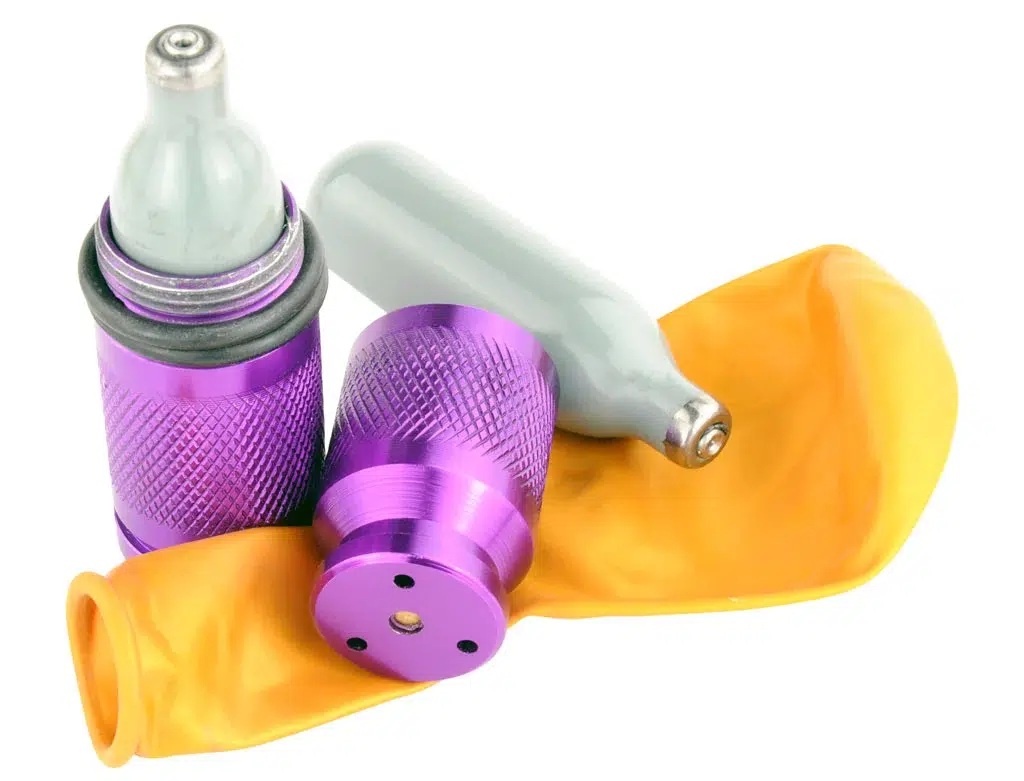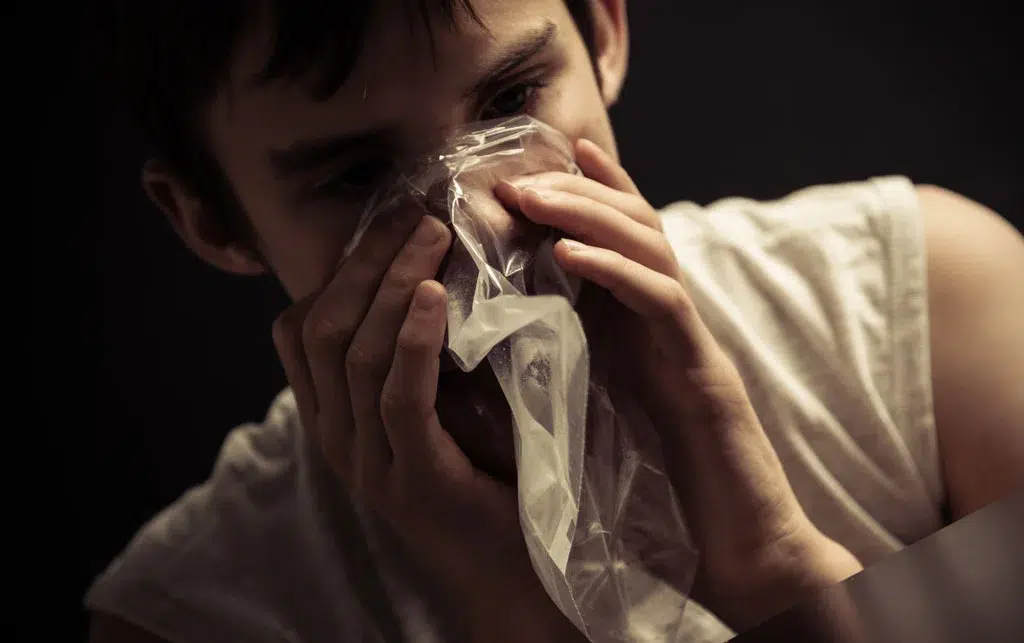Inhalants as Substances of Abuse
Table of Contents
Inhalants are a diverse group of everyday household and commercial products. These products are not normally used for their drug effects. Nevertheless, they can be adapted to act as makeshift drugs. Are inhalants addictive? The answer to this question is a bit complicated. Some people may get addicted to them in circumstances where others may not.
What is clear is the fact that inhalant abuse poses a hazard to your health and well-being. In both the short- and long-term, abuse of an inhalant can have seriously negative effects. For these and other reasons, someone who abuses inhalants may need substance treatment to recover.
What Are Inhalant Drugs
There are many different kinds of makeshift inhalant drugs. These drugs share one thing common. Namely, you can only use them by inhaling them through your nose and/or mouth. This distinguishes inhalants from other substances that can be inhaled, but may also enter your system in other ways. There are four main categories of inhalant drugs:
- Solvents
- Gases
- Aerosols
- Nitrites
Each of these categories includes multiple types of products. For example, the list of solvents includes gasoline, paint thinner, paint remover, lighter fluid and dry-cleaning fluids. It also include glue, the fluid in felt-tip markers, correction fluids and electronic contact cleaners.
Household and commercial gases used as inhalants include propane and the butane found in many lighters. They also include whipped cream dispensers, i.e., whippets. Aerosol products that can be used as inhalants include hairspray, spray-on deodorants and spray paints. In addition, they include vegetable oil sprays and the canned air used to clean computers.
Nitrites, also known as “poppers,” are a unique category of inhalants. These substances are not actually designed for everyday household or commercial use. Instead, their makers sometimes label them as such to hide their true contents. What are those contents? All nitrites contain chemicals that resemble amyl nitrate, a prescription medication for heart-related chest pain. When inhaled, they have a drug-like effect.
More than two million Americans abuse inhalants. By percentage, the highest rate of abuse is among preteens and teens between the ages of 12 and 17. However, in terms of sheer numbers, adults over 25 are the single largest group involved in this practice.
Drug Addiction Treatment Hotline
What Are the Most Commonly Used Inhalants
Some inhalants are abused more often than others. By far, the most common targets of abuse are markers and pens with felt tips. Other frequently abused inhalants include:
- Glue
- Shoe polish
- Spray paint
- Lighter fluid
- Gasoline
- Canned air, also known as air dusters
Are Inhalants Addictive
As a rule, addiction is defined by three co-occurring factors or elements. The first of these elements is physical dependence on the substance in question. This physical state is accompanied by the second element, emotional or psychological dependence. In turn, psychological dependence drives the third element: compulsive, drug-seeking behavior.
Can people who abuse inhalants develop these three overlapping problems? In other words, are inhalants addictive in the classic sense of the term? For most people, addiction is not likely. However, if you repeatedly abuse an inhalant, you may ultimately end up meeting the criteria for addiction.
But be aware that addiction is not the only diagnosable problem related to inhalant use. Without being addicted, you may still have a pattern of inhalant abuse that disrupts your ability to function. Both addiction and serious, non-addicted abuse are forms of inhalant use disorder.
What Are the Signs of Inhalant Addiction?
One of the telltale signs of inhalant addiction is withdrawal that occurs when you try to quit. The exact symptoms of inhalant withdrawal can vary from case to case. Issues you may experience include:
- Changes in your typical mood
- Unusual sleeping difficulties
- Lack of your normal level of appetite
- Heavy sweating
- Feelings of nausea
Can Long-Term Inhalant Abuse Be Damaging
Most inhalants produce their drug-like effects by slowing down your central nervous system. In doing so, they also slow down the normal rate of activity inside your brain. In the short term, this slowdown produces the “high” desired by people who abuse inhalants. It can also:
Cause you to slur other otherwise distort your words
Make it hard to coordinate your body movements
Produce dizziness
Other potential effects include drowsiness, vomiting and hallucinations. On their own, these short-term impacts can potentially endanger you. If you continue to abuse an inhalant, a host of other, even more serious problems may occur. Possible examples of these long-term problems include:
Disrupted kidney function
Liver damage
Loss of at least some of your hearing
Nerve damage
Delays in the normal course of preteen or teen development
Can You Overdose on Inhalant Drugs
An overdose occurs when a given substance overwhelms your normal body function and changes it in dangerous ways. Can you overdose on inhalant drugs? Simply, yes. Abuse of any inhalant can overwhelm your system. Solvent and aerosol abuse, in particular, put you at high risk.
This is true for a couple of reasons. First, products in these two categories are often stored in a very concentrated form. In addition, they tend to contain multiple active chemicals, not just one.
When you inhale a solvent or aerosol, you may have little advance warning that an overdose is coming. One potential issue is stoppage of the normal flow of oxygen to your brain. In addition, your heart may just suddenly stop beating as part of a phenomenon called sudden sniffing death. An overdose on any kind of inhalant may also lead to seizures. It may also lead to coma, a very dangerous, unresponsive form of unconsciousness. Other potentially deadly consequences of overdosing on inhalants include:
- Asphyxiating when your lungs fill with inhalant fumes instead of oxygen
- Suffocating when inhalant fumes stop oxygen from reaching your lungs
- Breathing in vomit and subsequently choking
Is Treatment Needed for Inhalant Addiction
If you are addicted to an inhalant, you need effective treatment to recover. You may also need treatment to help you recover from non-addicted inhalant abuse. In addition, you may need separate treatment for other mental health issues. This is true because well over half of all people who abuse an inhalant have a diagnosable mental illness. The common of these co-occurring illnesses include:
- Mood disorders, i.e., depression or bipolar disorder
- Anxiety disorders
- Personality disorders
You may also be affected other kinds of mental illnesses.
24 Hour Addiction Hotline
Forms of Addiction Treatment for Inhalant Abuse
What forms of addiction treatment are available for people who abuse inhalant drugs? One common option is cognitive-behavioral therapy, or CBT. In CBT, you develop skills that make it easier for you to stay inhalant-free. These skills include:
- The ability to recognize the things that increase your chances of using inhalants
- Learning how to steer clear of those things whenever possible
- Developing the capacity to cope with inhalant use triggers that you cannot avoid
You may also benefit from something called motivational incentives. In this form of therapy, you receive rewards or prizes when you reach specific treatment goals. These rewards give you a tangible reason to stick to your recovery plan.
Family counseling can be crucial, especially for teenagers addicted to inhalants. This form of treatment helps you address family-related factors that may be reinforcing inhalant abuse. It also helps families avoid future problems by improving the quality of their daily communication.
Other treatment options may also be used. For example, your recovery plan may include membership in a support group for people with inhalant-related problems. Teens in particular may also benefit from activity programs that provide them with alternatives to inhalant use.
Lasting Recovery From Inhalant Addiction Is Possible at Emerald Isle
Inhalants are a large group of household and commercial products used as makeshift drugs. These drugs can have a variety of damaging effects on your health. In some cases, those effects may include addiction. However, a far more common issue is non-addicted inhalant abuse that causes serious harm.
Long-term abuse of an inhalant can damage multiple major organs, including your brain, kidneys and liver. In teens and preteens, it can also lead to harmful changes in normal growth and development. You can also overdose after using an inhalant. This is true even if you have never used one before. Importantly, inhalant overdoses can happen very quickly and with little warning.
For all of these reasons, it is critical that you stop using inhalants as soon as possible. To do this, you may need formal addiction treatment. At Emerald Isle Health & Recovery, we feature treatment for inhalant abuse and addiction. This treatment will help you address the effects of an addiction to any of these makeshift drugs. It will also help you avoid returning to inhalant abuse in the future.
If you are also affected by additional mental health issues, Emerald Isle is here for you. We offer programs for the treatment of all major mental illnesses. With our help, you can start a recovery plan that addresses both mental illness and addiction. All plans are fully customized to meet your needs and situation. To learn more about your treatment options at Emerald Isle, call us today.


